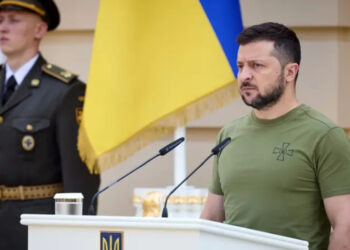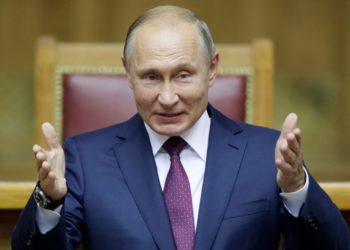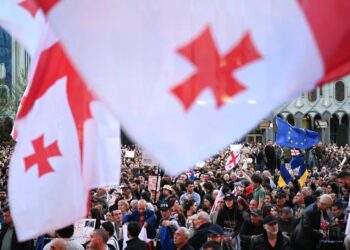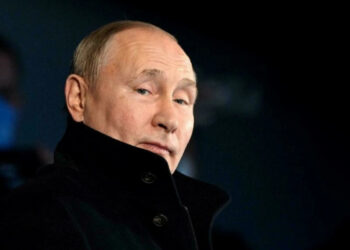It has been four years since the confrontation between Western countries and Russia over Ukraine started. Both sides have repeatedly introduced sanctions against each other. Up to date, there are no signs that the restrictive measures are going to be rolled back any time soon, and it is mainly the Russian people who have to live with the consequences of the new policies.
Why Were Sanctions Imposed?
Four years ago, Russia experienced one of the most intense periods in its modern history. In February, the city of Sochi hosted the 2014 Winter Olympics, and just a month after that, the Crimean Peninsula was annexed from Ukraine.
Both events emptied the country’s budget, while the annexation led to international sanctions. The measures were imposed by many Western countries, including the U.S, Canada, Australia, and the members of the European Union.
In addition, oil prices fell in 2014 from around $100 per barrel in June to nearly $50 in December, a massive shock for the Russian economy which has always depended on oil prices.
“The local government simply stopped paying us,” a businessman who was working for a regional government procurement told The Globe Post. He preferred not to mention his name. “It was in December 2013, when I got paid for my services for the last time. After that, I basically worked for free for two more years, until I had enough of being promised jam tomorrow. It took me another two years in courts to get at least some of money I’ve earned.”
“They said the local budget didn’t have any money due to the financial crisis,” the businessman explained. “There were dozens of businessmen like me. We were desperate. We didn’t have money to pay our employees or taxes, and the government sued us for that!”
By the end of 2015, the inflation rate in Russia reached almost 13 percent. In December 2017, the government reported that there were more than 20 million poor people in the country. In other words, every seventh Russian could not afford food.
How Did Russia React to Sanctions?
At first, the annexation of Crimea was greeted warmly by the general public, with President Vladimir Putin’s approval rating skyrocketing from 65 to 80 percent within just two months. More than 110,000 Muscovites participated in a concert called “We Are Together” meant to celebrate the annexation.
At the time, news of the sanctions was met with sarcasm. Millions of memes and jokes on the subject were shared online. In the aftermath of travel bans imposed on some Russian politicians, some local shops and restaurants pinned to their doors posters saying that Barack Obama was not allowed to enter their venues.
But soon enough with the ruble weakening, oil becoming cheaper and food prices rising, laughter was replaced with tears. December 16, 2014, became known as Black Tuesday for the Russian stock market, since the exchange rate for one U.S. dollar hit 80 rubles mark. Just a few months prior to that it stood at 30 rubles.
Since then, many more restrictive measures were introduced in response to the Ukrainian crisis, alleged meddling in democratic processes and poisoning of the Scripals in the U.K.
Hundreds of Russian politicians, officials and businessmen were banned from entering countries which imposed sanctions. For the last four years, Crimea has been financially and economically blocked. The Russian banking system has become partly isolated.
“Sanctions inflicted a lot of damage to our banks. Primarily, restrictions on borrowing in foreign markets,” former head of the Central Bank of Russia Sergei Dubinin said in his interview with Kommersant. “The current limit on terms of loans is three weeks. What are three weeks for a bank? This is not a time limit, it’s insanity: during this time, it is only possible to make transactions between banks.”
Western affiliates were forbidden to work with hundreds of Russian companies, including the biggest ones, and to cooperate with Russia in oil, weapon, space and some other industries. Blacklisted companies’ foreign actives were frozen.
For a long time, Russian officials denied that sanctions had had any effect, saying that these measures were useless. “If it looked to the Americans and Europeans that we fell to our knees, we actually bent down to tie the shoelaces on our sneakers and sprint forward at a higher speed,” Deputy Minister of Agriculture Evgeny Gromyko said, as quoted by RIA Novosti.
However, most of the Russian politicians — at long last — had to admit sanctions’ effects. “We do not get as much investment as we could get. We could have had more loans. Many more loans from Western banks could have been attracted to develop the industry, to develop production in Russia, if there were no such sanctions,” Minister of Finance Anton Siluanov stated.
According to the head of the Economic Expert Group Evsei Gurvich, during the first two years, sanctions annually cut Russian GDP growth rate by 0,5-1 percent. This means that the country lost between seven and 14 billion dollars.
“Later, the effect of uncertainty decreased, and in 2017 we lost 0,3 percent of our GDP growth. It’s hard to tell how much we will lose in 2018 because of the new sanctions, but I think something like 0,5 percent of GDP growth,” Mr. Gurvich told The Globe Post.
What Did Russia Do in Return?
The Russian government has introduced programs of support for blacklisted companies, which are basically owned by oligarchs whose fortunes reduced significantly. For example, billionaire Viktor Vekselberg, the owner of a large Renova conglomerate, recently got financial aid from the budget in the face of new sanctions. The government preferred not to name the exact amount of money the billionaire received.
While the richest people of the nation are enjoying tax breaks and extra money from the Kremlin, their compatriots can afford less, especially when it comes to travel. During the last four years, outbound tourism in Russia decreased by nearly 30 percent.
“Before 2014, when [Chinese] yuan cost us two or even three times less, trips to China were way more popular here,” a resident of Chita, a city close to the Russian-Chinese border, Olga Kalacheva, told The Globe Post. “You would see many more cars with Russians going to shop in China, standing in lines by the customs. We felt rich. I personally felt rich in China, although I was never considered a rich person in my home city. Back then, I could afford several trips to China and one trip to the sea in Thailand or Vietnam each year. I miss these trips a lot.”
During the sanctions period, Kalacheva’s salary has not been raised at all and even lost some of its value. According to official statistics, Russians’ actual income decreased by more than 11 percent.
In August 2014, the Russian government introduced food embargo against all countries that imposed sanctions earlier. The move mostly damaged European companies which massively supplied fruits, groceries and milk products to the Russian market.
Russian citizens who got used to these products were affected as well. For instance, many particularly missed European cheeses.
The term “sanktsionka,” meaning produce forbidden by sanctions, started to be commonly used. Russians started to bring European food from their trips abroad, and the government had to impose limits on the amounts of goods that could be brought into the country.
However, with the government support and growing demand for domestic products, Russian manufacturers finally started to produce goods to replace at least some of the imported ones. By the end of 2017, food import in Russia reduced by 12 percent. This development is usually seen as a positive one, but Gurvich does not agree.
“The government’s efforts on import replacement will lead to further isolation of the Russian economy. We are currently trying not to lean on Western technologies and create our own duplicates instead of using our resources to create brand new technologies and make breakthroughs. We are not participating in the international division of labor. In the long term, it’s serious damage for our development,” Gurvich explained.
What Is Happening Now?
One of the latest sanctions boosts happened in early April, when the U.S. Department of the Treasury added 24 more Russian citizens, mostly oligarchs, and 14 more Russian companies to its sanctions list. This led to a stock market crash and the further collapse of the Russian ruble. The Treasury explained its decision by underscoring Moscow’s interference in Ukraine and Syria.
“We will not leave this and any new anti-Russian attack without a hard response,” the Russian Foreign Ministry said. “First of all, we would like to advise Washington to get rid of illusions that it can speak with the language of sanctions to us.”
Soon enough, members of the Russian parliament introduced two bills. The first one allowed the government to forbid any import from the U.S. and “other unfriendly countries,” the second one would help authorities to start cases against people and companies which supported international sanctions or helped them to be imposed.
The Russian businessman, who worked for the government procurement, shared has his own view of the situation: “I don’t really care about sanctions. Common Russians like us were and will be poor, with sanctions or without them.”



















